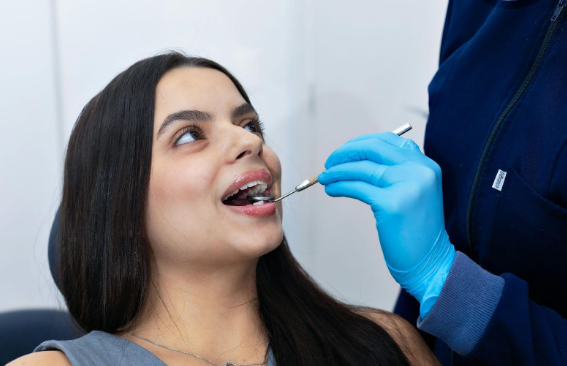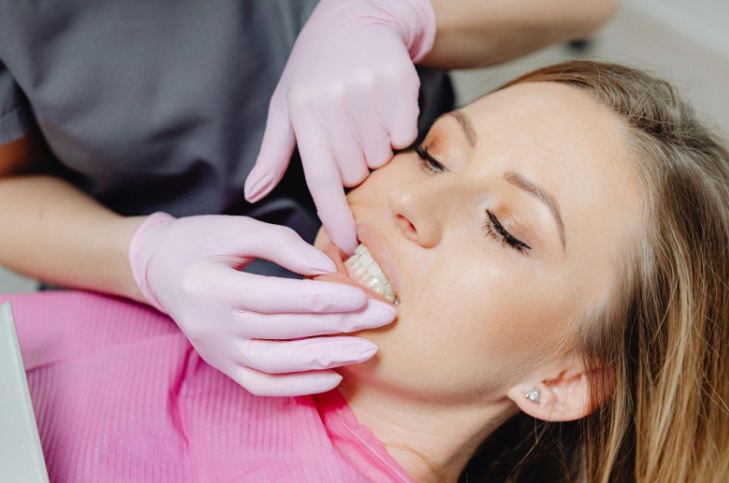What Does It Mean If I Have an Abscessed Tooth?
What Does It Mean If I Have an Abscessed Tooth?

If you’ve been told you have an abscessed tooth, or you suspect you might, it can sound alarming. While it’s something to take seriously, knowing what an abscessed tooth is and how to handle it can make the situation less overwhelming.
What Is an Abscessed Tooth?
An abscessed tooth is an infection, and it occurs when bacteria invade the pulp of the tooth. The pulp is the innermost part of the tooth and is where nerves, blood vessels, and connective tissue are all located. Once bacteria get inside, an abscess—a pocket of pus—forms at the root of the tooth.
There are two types of abscesses:
- Periapical Abscess: When an abscess happens at the tip of the tooth’s root, it’s known as a periapical abscess. It’s usually caused by untreated dental cavities, trauma to the tooth, or a tooth being cracked.
- Periodontal Abscess: This abscess forms in the gums next to the tooth's root, often due to gum disease or injury to the gums.
Symptoms of an Abscessed Tooth
Pain is the most common and noticeable symptom of an abscessed tooth, but it’s not the only one. Symptoms can vary depending on the severity of the infection, but one sign to watch out for is a severe toothache, where the pain is sharp, throbbing, or radiating to your jaw, ear, or neck. You may notice increased sensitivity when drinking or eating hot or cold foods and beverages as well.
Swelling in your face or cheek can be caused by the infection from the abscessed tooth spreading. Lymph nodes in your neck or under your jaw can also become swollen or painful, and if the abscess ruptures, you may experience a foul taste or bad breath. In an attempt to fight off the bacteria, your body may respond to the infection with a fever too.
What Causes an Abscessed Tooth?
An abscessed tooth forms due to bacterial infection, which typically enters the tooth or gums through a few different pathways. When tooth decay is left untreated, it can create a pathway for bacteria to reach the pulp. A crack or chip in your tooth can also provide bacteria with a route to the pulp, leading to infection. Periodontal disease can cause your gums to pull away from the teeth, forming pockets where bacteria can accumulate, eventually leading to an abscess.
A tooth injury or blunt force trauma can damage the pulp, making it vulnerable to bacterial invasion. Failing to brush and floss regularly can lead to plaque buildup, which may also contribute to cavities and gum disease, both of which can result in an abscessed tooth.
Is an Abscessed Tooth Dangerous?
While an abscessed tooth can be extremely painful, what makes it truly dangerous is the potential for the infection to spread. If the infection moves beyond the tooth and into your jaw, face, or even bloodstream, it can cause serious health issues, such as:
- Bone Infection: The infection can spread to the bones in your face, leading to a condition called osteomyelitis.
- Sinus Infection: Abscesses in the upper teeth can sometimes spread to the sinuses, causing a condition known as sinusitis.
- Septicemia (Blood Infection): In rare cases, if the bacteria enter the bloodstream, it can cause a life-threatening condition called septicemia.
Because of these potential complications, it’s important not to ignore the symptoms of an abscessed tooth or try to manage the pain on your own without professional treatment.
How Is an Abscessed Tooth Diagnosed?
If you think you have an abscessed tooth, schedule an appointment with your dentist as soon as possible. Your dentist will perform an examination, asking you about your symptoms and visually inspecting the tooth. To check for tenderness, your dentist might gently tap on the tooth. If it’s abscessed, it’s likely to be very sensitive. An X-ray will help your dentist determine the extent of the infection and whether it has spread to other areas, like the jawbone.
Thermal or electrical tests can help determine the vitality of the tooth’s pulp by seeing how it responds to hot or cold temperatures or electrical stimulation, so your dentist might also diagnose your abscessed tooth by performing such tests. Once the dentist has diagnosed your situation, they will suggest appropriate courses of treatment.
How Is an Abscessed Tooth Treated?
The goal of treating an abscessed tooth is to eliminate the infection and save the tooth if possible. Here are the most common treatment options:
- Draining the Abscess: Your dentist may need to make a small incision in the abscess to drain the pus. This provides immediate relief from pressure and pain.
- Root Canal Therapy: In many cases, a root canal is the best way to save an abscessed tooth. During this procedure, your dentist will remove the infected pulp, clean and disinfect the inside of the tooth, and seal it to prevent further infection. In most cases, a crown is placed over the tooth to protect it.
- Tooth Extraction: If the tooth is too damaged or the infection is too severe, the tooth may need to be removed. This eliminates the infection, but you’ll need to discuss options for replacing the tooth, like a dental implant or bridge.
- Antibiotics: In cases where the infection has spread beyond the tooth, or if the abscess cannot be drained immediately, your dentist may prescribe antibiotics to help fight the infection.
After treatment, it’s important to maintain good oral hygiene to prevent future abscesses.
What Happens If an Abscessed Tooth Is Left Untreated?
Ignoring an abscessed tooth can have serious consequences. The infection will not go away on its own, and the longer it goes untreated, the more likely it is to spread and cause further complications, like bone loss, sinus infections, or even a blood infection.
Additionally, the pain from an abscessed tooth can become unbearable, making it difficult to eat, sleep, or carry out daily activities. It’s always best to address the issue early to avoid more extensive—and expensive—treatments down the road.
Can You Prevent an Abscessed Tooth?
The best way to prevent an abscessed tooth is through proper dental care and regular checkups. Regular dental checkups allow your dentist to catch any problems, like cavities or gum disease, early—before they turn into abscesses. Brushing and flossing regularly can also keep your teeth in pristine condition, and if you play sports, wearing a mouth guard can further aid in protecting your teeth.
Our team at
Patriot Family Dental can assist you with all your dental concerns, including tooth abscesses.
Don’t wait—contact us today!











